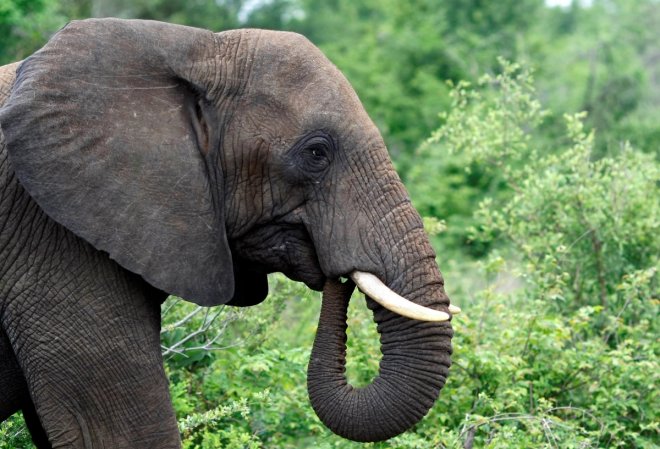
Illegally procured elephant skins started showing up in markets in Myanmar that sell ingredients for traditional medicines. These hubs are often held responsible for feeding the demand for illegal goods procured from endangered animals, like tusks, teeth and claws.
According to reports, in the markets where teeth from tigers and oil from bears were a common sight, slices of skin from the country's fast-disappearing wild elephants have become popular among customers.
Agence France-Presse reported it is believed elephant skin cures eczema. "You burn pieces of skin by putting them in a clay pot. Then you get the ash and mix it with coconut oil to apply on the eczema," says a shopkeeper while selling the product to a customer, priced at 5,000 kyat ($3.65) per square inch.
Not only skin, other elephant products are sold in the market. Traders sell paste made from elephants' tusks by saying that it cures pimples and dark spots. "Your face will be smooth and white after you use it," said one such shopkeeper, according to the news agency.
Also read: Baby Elephant refuses to leave dying mother after falling into 10-foot deep pit [VIDEO]
However, there is no scientific proof that these products help in the ailment of the particular disease and experts argue that the beliefs are mostly superstitious.
Elephant poaching has become rampant in the Buddhist country and government officials blame the ever-increasing demand for ivory and other related products for the trend. According to the AFP report, Myanmar's wild elephant population is expected to have become half over the past decade. While a substantial amount of the products obtain from the animal is sold in local markets, the majority is exported to China, which is known to have a taste for exotic animal products.
Weak laws protecting the endangered animals are also held responsible for the current scenario in Myanmar. Watchdog TRAFFIC claims the country has "the largest unregulated open markets for tiger parts" in Southeast Asia, according to the AFP. These markets also sell everything from African rhino horn to pangolin shells.
Investigations revealed that much of this illegal trade flourishes through the country's lawless eastern periphery and is closely monitored by powerful Chinese kingpins.









